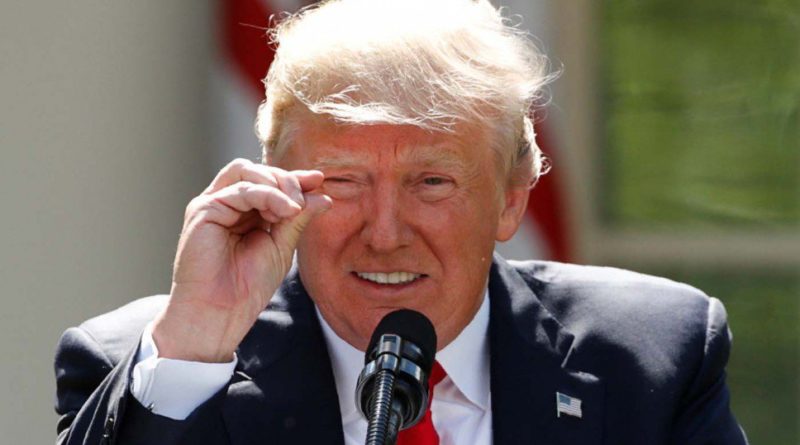Trump acusa al gobierno de Venezuela de no impedir el narcotráfico
El presidente de Estados Unidos, Donald Trump, firmó la designación anual para el año fiscal 2018, que hace Washington de los países a los que considera importantes zonas de producción o tránsito de narcóticos y acusa a Venezuela y 14 países más.
El documento de la Casa Blanca firmado por Trump señala que “identifico a los siguientes países como principales países productores de drogas o tránsito ilícito de drogas: Afganistán, Ecuador, El Salvador, Guatemala, Haití, Honduras, India, Jamaica, Laos, México, Nicaragua, Pakistán, Panamá, Perú y Venezuela”.
De los 15 países, sólo Bolivia y Venezuela no han podido demostrar durante los 12 meses anteriores cumplir con sus obligaciones en virtud de acuerdos internacionales contra el narcotráfico ni tomar las medidas requeridas para evitarlo.
THE WHITE HOUSE
Office of the Press Secretary
FOR IMMEDIATE RELEASE
September 13, 2017
Presidential Determination
No. 2017-12
MEMORANDUM FOR THE SECRETARY OF STATE
SUBJECT: Presidential Determination on Major Drug Transit or Major Illicit Drug Producing Countries for Fiscal Year 2018
Pursuant to section 706(1) of the Foreign Relations Authorization Act, Fiscal Year 2003 (Public Law 107-228) (FRAA), I hereby identify the following countries as major drug transit and/or major illicit drug producing countries: Afghanistan, The Bahamas, Belize, Bolivia, Burma, Colombia, Costa Rica, Dominican Republic, Ecuador, El Salvador, Guatemala, Haiti, Honduras, India, Jamaica, Laos, Mexico, Nicaragua, Pakistan, Panama, Peru, and Venezuela.
A country’s presence on the foregoing list is not necessarily a reflection of its government’s counternarcotics efforts or level of cooperation with the United States. Consistent with the statutory definition of a major drug transit or drug producing country set forth in section 481(e)(2) and (5) of the Foreign Assistance Act of 1961, as amended (FAA), the reason major drug transit or illicit drug producing countries are placed on the list is the combination of geographic, commercial, and economic factors that allow drugs to transit or be produced, even if a government has carried out the most assiduous narcotics control law enforcement measures.
Pursuant to section 706(2)(A) of the FRAA, I hereby designate Bolivia and Venezuela as countries that have failed demonstrably during the previous 12 months to adhere to their obligations under international counternarcotics agreements, and to take the measures required by section 489(a)(1) of the FAA. Included with this determination are justifications for the designations of Bolivia and Venezuela, as required by section 706(2)(B) of the FRAA.
In addition, the United States Government seriously considered designating Colombia as a country that has failed demonstrably to adhere to its obligations under international counternarcotics agreements due to the extraordinary growth of coca cultivation and cocaine production over the past 3 years, including record cultivation during the last 12 months. Ultimately, Colombia is not designated because the Colombian National Police and Armed Forces are close law enforcement and security partners of the United States in the Western Hemisphere, they are improving interdiction efforts, and have restarted some eradication that they had significantly curtailed beginning in 2013. I will, however, keep this designation under section 706(2)(A) of the FRAA as an option, and expect Colombia to make significant progress in reducing coca cultivation and production of cocaine.
I have also determined, in accordance with provisions of section 706(3)(A) of the FRAA, that support for programs to aid the people of Venezuela are vital to the national interests of the United States.
You are hereby authorized and directed to submit this designation, with its Bolivia and Venezuela memoranda of justification, under section 706 of the FRAA, to the Congress, and publish it in the Federal Register.
